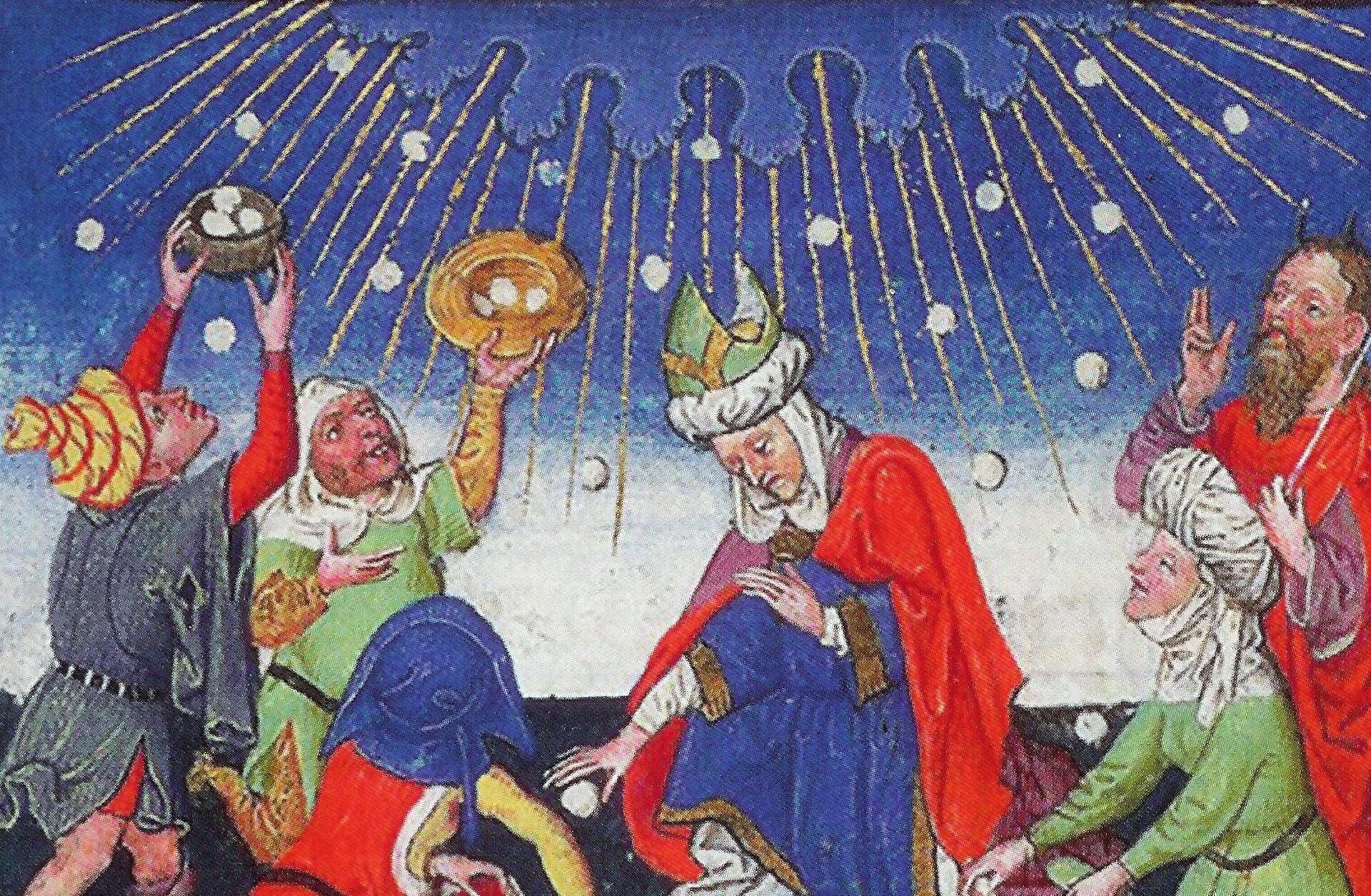The Israelites first crisis in the desert is a lack of water; now comes the next crisis, a lack of food. God answers the Israelites’ call and begins the longest running, continuous miracle in the Old Testament—the daily manna from heaven. Each morning, manna reigns down from heaven like the dewfall. It is the “bread of angels,” that God sustains the Israelites on their desert journey for 40years. The wind, or “ruach,” also directs an abundance of quail over the camp of the Israelites. The Hebrew word ruach is the same word for “spirit.” Thus, the Spirit of God provides the Israelites with the bread of manna from heaven, and the flesh of the quail. God provides bread and flesh for the Israelites, as Christ provides the “bread” and flesh of his body, blood, soul, and divinity in the Holy Eucharist. The Eucharist is our daily manna from heaven, where the bread is transubstantiated into the flesh of Christ. He is our daily manna from heaven that sustains us on our desert wanderings of this earthly sojourn, until we cross over into the Promised Land of heaven. Again, the miraculous in Exodus becomes the supernatural in the New Testament. God is not subtle with his symbology. The supernatural Sacrament of the Eucharist is our daily manna from heaven.
In fact, Jesus himself addresses this typology directly in his Bread of Life discourse. The Jews challenge him to reproduce Moses’ daily manna miracle. In response, Christ says that he is the Bread of Life, and “unless you eat the flesh of the Son of man and drink his blood, you have no life in you; he who eats my flesh and drinks my blood has eternal life, and I will raise him at the last day” (John 6:53-54). Many of his disciples are offended by this teaching of the Real Presence in the Eucharist and fall away. Yet, Jesus does not diminish his words. In fact, Jesus doubles down on them, saying, “For my flesh is food indeed, and my blood is drink indeed” (John 6:55). Even though the Israelites eat the type of Eucharist, they still die in the desert. Yet, those who eat Christ’s Eucharist—the fulfillment of the manna type—“he who eats this bread will live forever” (John 6:58).
There is only one other place in the Bible where Scripture speaks of eating and living forever—in Genesis at the Tree of Life. God prevents man from eating from the Tree of Life, “lest he put forth his hand and take also of the Tree of Life, and eat, and live forever” (Genesis 3:22). What was closed to mankind with Original Sin in the Garden of Eden is now open to all humanity with the fruit of the Tree of the Cross, and its Eucharistic manna. We can now eat and live forever. This is why St. Ignatius of Antioch, a disciple of St. John the Apostle, calls the Eucharist “our medicine of immortality.”
Follow along as Brian Kranick shows how the miraculous in Exodus becomes the supernatural & sacramental in the New Covenant and the Catholic Church:
- Part I: From Exodus to Easter – Old Testament Typologies Reveal New Testament Realities
- Part II: From Exodus to Easter – Jesus, The New Moses
- Part III: From Exodus to Easter – The New Joshua
- Part IV: From Exodus to Easter – The Passover Lamb
- Part V: From Exodus to Easter – Baptism and the Waters of Exodus
Brian Kranick is the author of Burning Bush, Burning Hearts: Exodus as Paradigm of the Gospel. He has a master’s degree in Systematic Theology from Christendom College and writes about theological issues at sacramentallife.com. He resides with his family in the Pacific Northwest.



